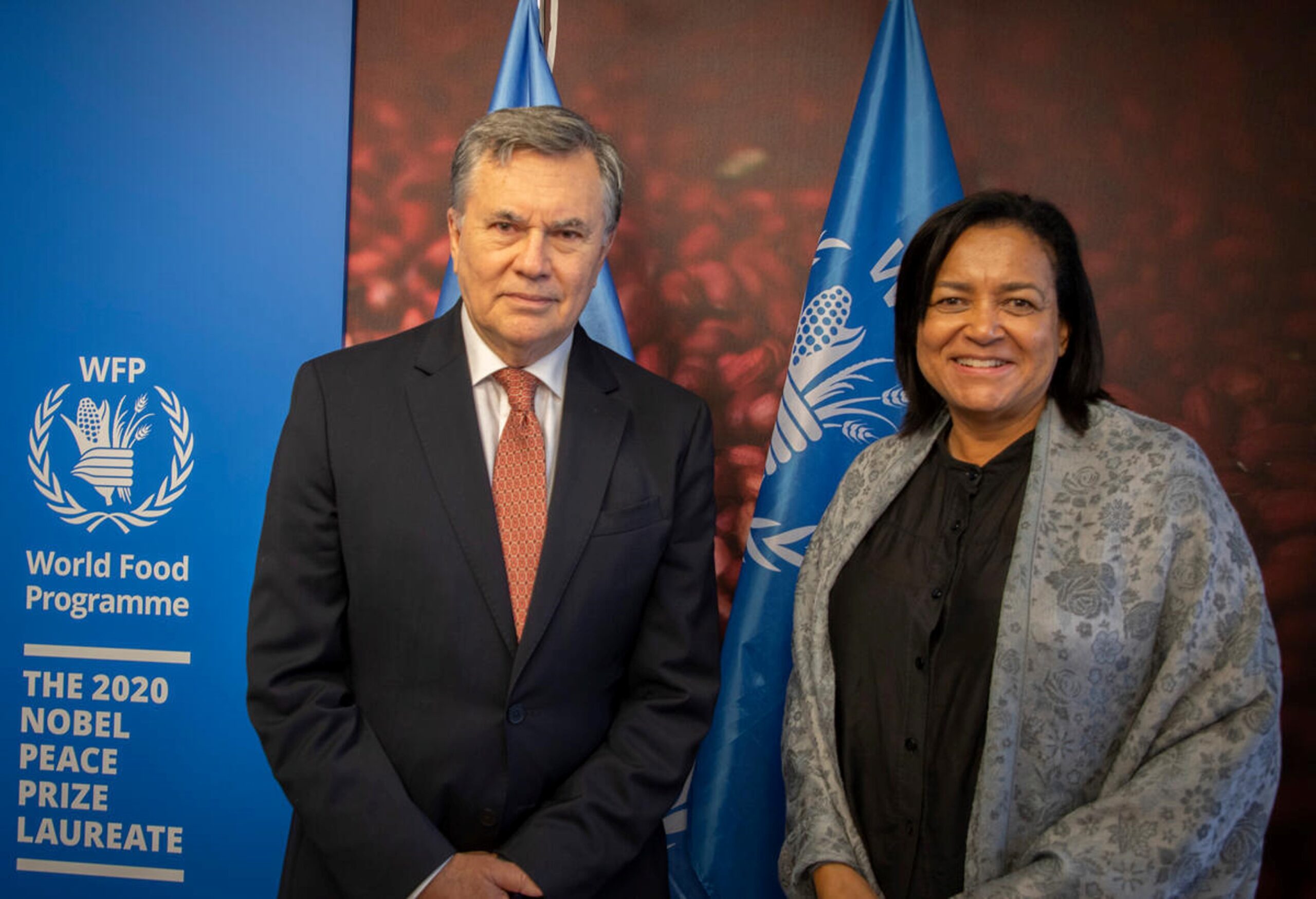This was agreed upon in Rome by WFP Deputy Executive Director, Valerie Guarnieri, and IICA Director General, Manuel Otero.

ROME, 11 October 2024 (IICA) – School meals and actions in Haiti, Central America, and the Caribbean will be the focus of the joint work between the World Food Programme (WFP) and the Inter-American Institute for Cooperation on Agriculture (IICA), as agreed in Rome by WFP Deputy Executive Director Valerie Guarnieri and IICA Director General Manuel Otero.
Guarnieri, upon receiving Otero in the Italian capital, invited the head of the organization specializing in agricultural and rural development to join the School Meals Coalition, a global platform that promotes actions to improve and expand programs that guarantee at least one meal for children in school.
The Deputy Executive Director, who was accompanied at the meeting by Carmen Burbano, Director of WFP’s School Feeding Division, described the scope and importance of the coalition’s work, which is vital for keeping children in school, improving their learning and health, and promoting food security.
The School Meals Coalition drives urgent actions to improve and expand school meal programs to ensure that all children can receive a healthy and nutritious meal at school.
The senior WFP official emphasized the importance of school meals in educational performance and, at the same time, the role they can play in supporting small-scale agriculture, women, and rural youth.
Otero, for his part, highlighted IICA’s work and extensive presence in Central America and the Caribbean, and detailed the Institute’s efforts to promote collective action among countries and build resilience in rural areas, including in countries like Haiti, where the organization has an office that contributes to strengthening fragile family farming in this country—the poorest in the Americas and one of the three most vulnerable in the world to the effects of climate change.
IICA is one of the few international organizations working in Haiti’s rural areas, especially in providing technical assistance, prioritizing food and nutritional security, and addressing issues such as food safety, education, and capacity building. In this context, Otero stressed the importance of agriculture as a tool for peace and stability.
Haiti’s agricultural sector employs nearly two-thirds of the economically active population of the country, which is plagued by a rise in the already constant and extreme instability and political unrest, social violence, severe food insecurity, and a lack of basic services such as electricity and drinking water.
Otero’s visit to WFP took place as part of his official mission to Rome, where he held meetings with his counterpart from FAO, the Food and Agriculture Organization of the United Nations, Qu Dongyu, and the president of IFAD (International Fund for Agricultural Development), Álvaro Lario. He also participated in a dialogue with African farmers organized by the Pontifical Academy for Life and Bayer, in addition to meetings with various producer organizations and IICA itself.
The World Food Programme (WFP) of the UN is the world’s largest humanitarian organization.
Present in more than 120 countries and territories, its mission includes delivering food to people displaced by conflicts and affected by disasters; it also contributes to the nutrition of women and children, helps small farmers improve productivity and reduce losses, and supports countries and communities in preparing for and responding to climate-related crises. Through its school feeding programs, WFP fosters human capital.
For this work, which involves aiding exhausted populations and using food assistance to help resolve conflicts and promote stability, WFP was awarded the Nobel Peace Prize in 2020.
At WFP headquarters, Otero participated in a tribute to those who lost their lives while carrying out the organization’s humanitarian mission.
More information:
Institutional Communication Division.
comunicacion.institucional@iica.int











